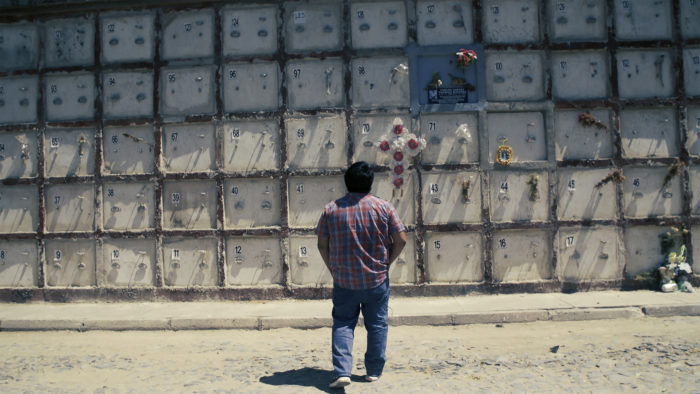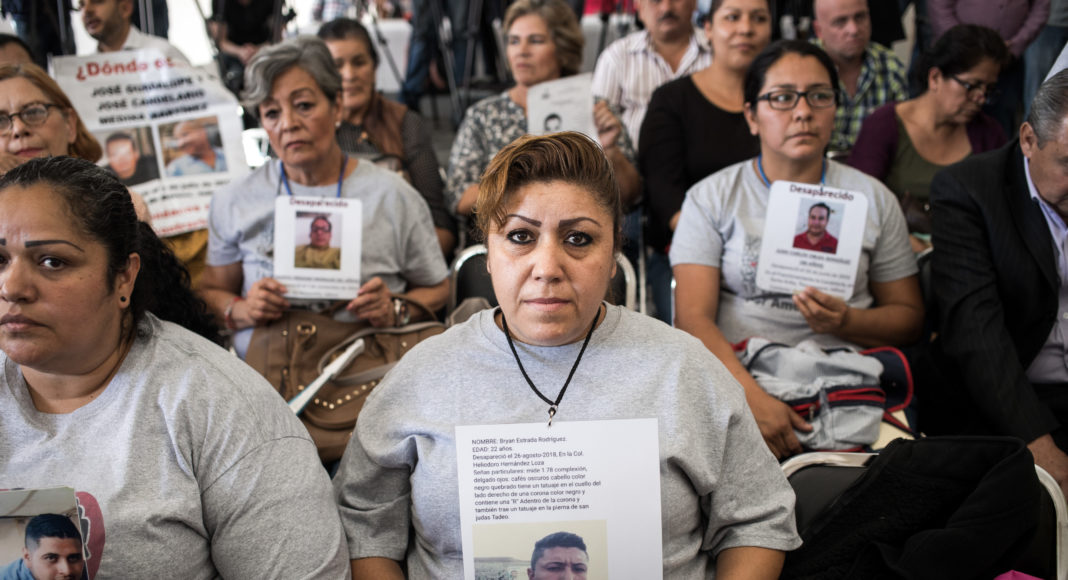Hunter N Johnson’s impactful short documentary takes an intimate look at the role of investigative journalism in the context of Mexico’s widespread abductions and forced disappearances. The film follows the public and private lives of Darwin Franco and Dalia Souza, two married independent journalists who are dedicated to uncovering and reporting the truth behind these disappearances, in the face of government negligence and corruption.
IN Mexico people don’t disappear, they are disappeared.
The subject matter of Until We Find Them is nothing new in the story of Mexico, where 97, 832 people have gone missing since 1964 according to data collected by the National Search Commission. Abductions and forced disappearances have been a part of life in the country since the Mexican Dirty War, a period of low-intensity armed conflict which took place during the Cold War, and in which the Mexican State carried out thousands of disappearances, extrajudicial executions and systematic torture against left-wing student and guerrilla groups.
In 2006, right-wing president Felipe Calderón declared war on Mexico’s formidable drug cartels, resulting in a resurgence of conflict and a new wave of disappearances across the country.
16 years later, this failed war on drugs has seen more than 330,000 homicides and 78,859 missing persons, and the collusion between the State and the same drug trafficking organisations that they are supposedly fighting has gradually become more apparent. In 2014, the disappearance of 43 rural students cast light not only on the deepening crisis, but also on the State’s corruption and involvement with criminal groups. The event sparked mass-mobilisations in Mexico and around the globe, demanding transparency and justice. It also shed light on what thousands of ordinary people had been doing for decades: searching for their loved ones.

In this context, Johnson’s documentary explores the role of investigative journalism as an avenue for finding the truth behind the disappearances of ordinary citizens, and a means of bringing this issue to light in the face of State negligence and corruption. In the opening minutes of the film Darwin declares that the role of the journalist is to ‘communicate the moment in which we live’ in a responsible way. More than this, the documentary demonstrates the way in which journalism and activism are forced to assume a role that should be the responsibility of State authorities. According to Darwin, ‘if we don’t do it, the government will tell a different story’.
The mission of Darwin, Dalia and other journalists is not simply to expose truths that the government neglects to reveal, but also to reveal the accountability shared by the State and organised criminals. Some of the most striking revelations in the documentary point to direct State interference in identifying victims – from botched exhumations to incinerating bodies before a DNA test can be carried out. These shocking facts reveal the ways in which organised crime uses the framework of a submissive and corrupt State to its own ends.
In this context, it falls on journalists and activist groups to pursue justice and transparency, and family members of the disappeared are often forced to carry out their own investigations. The documentary effectively captures this, with intimate, on-the-ground footage of demonstrations and live-streamed exhumations carried out by the mothers of the disappeared.

Johnson’s documentary presents a narrow window to a very wide issue, but offers an astute representation of the most important means of documenting it: journalism. Other documentaries, such as Volverte a ver and Te nombré en el silencio provide deeper insights into the struggles faced by families of the disappeared, while here the focus rests primarily on the lives of the journalists who dedicate themselves to documenting these struggles.
Until We Find Them is part of the 3rd Cine Latino in the UK Festival and will be screened from March 22 – 25, 2022. Free Admission: https://cinelatino.eventbrite.co.uk


